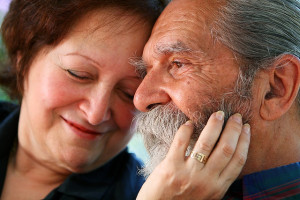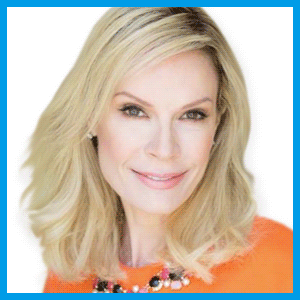- Calls to this hotline are currently being directed to Within Health, Fay or Eating Disorder Solutions
- Representatives are standing by 24/7 to help answer your questions
- All calls are confidential and HIPAA compliant
- There is no obligation or cost to call
- Eating Disorder Hope does not receive any commissions or fees dependent upon which provider you select
- Additional treatment providers are located on our directory or samhsa.gov
Not Your Daughter’s Eating Disorder: Eating Disorders in Midlife and Beyond

Contributor: Nina Savelle-Rocklin, Psy.D.
Several years ago while interning at a counseling center, I was assigned a new client named Bill, a tall man in his 50s who wanted help with his “problem” with food. He binged on huge quantities of food and then vomited or used laxatives. In discussing his symptoms, I diagnosed bulimia, to which he objected. “I don’t have an eating disorder,” he told me, “I just have a problem with food.”
When I explored his resistance to thinking about this “problem” as bulimia, he asserted that only teenage girls had eating disorders. He was an adult man and therefore there was no possibility that he could have eating disorder. “It’s a girl thing,” he said.
Eating Disorders Don’t Discriminate
This is a common misconception. Eating disorders are not the purview of adolescent girls. People across all gender and age lines have eating disorders. In my clinical practice I treat many men and women in their 40s – 70s, and all have struggled with eating disorders for decades.
With one exception, all developed symptoms in childhood or adolescence. The patient who developed binge eating disorder after college did so after a sexual attack at her workplace. She began bingeing as a way of soothing herself, as well as protecting herself from sexual attention by gaining weight.
Why Older Individuals Are Also at Risk
Psychologist and author Cynthia Bulik (2013) suggests, “People in midlife can be at increased risk for any eating disorder simply because their stage of life affords them greater access to dangerous compounds that can be used in the service of weight loss” (p. 38). Adults may find it easier to buy laxatives, conceal their binges and purges, and hide their bingeing and restricting from others. One of my patients told me her husband of ten years had no idea that she was bulimic.
I find that people with midlife eating disorders generally have either struggled all their lives or have a period of remission for a period of years, after which the disorder resurfaces.
Stories of Older Adults with Eating Disorders
 Bill’s “problem with food” dated back to childhood, when as a “typical latchkey kid” he came home to an empty house and began eating to fill the void. Bingeing and later purging was his way of managing his conflict about needs for connection and care.
Bill’s “problem with food” dated back to childhood, when as a “typical latchkey kid” he came home to an empty house and began eating to fill the void. Bingeing and later purging was his way of managing his conflict about needs for connection and care.
Karen, 58, had been anorexic in high school and college, but recovered on her own (or so she thought) after marrying and starting a family. When her last child left for college, Karen started restricting food again.
In adolescence, anorexia had served in part to express her fears about leaving her family and being on her own. In midlife, she experienced something similar to that earlier situation. She expressed the loss of her kids and the empty nest syndrome through physical emptiness. In both cases, the anorexia was a means of dealing with conflicts about attachment.
Finding the Internal Conflict and Treating It
Eating disorders are a symptom of an internal conflict. These conflicts may be consistent throughout the lifespan or can surface at different times in development. The good news is, treatment can lead to lifelong recovery.
References:
- Bulik, C. (2013). Midlife Eating Disorders: Your Journey To Recovery. Walker & Company: New York, NY.
About the Author:
 Dr. Nina Savelle-Rocklin, Psy.D. is a psychoanalyst specializing in weight, food and body image issues based in Los Angeles. Dr. Nina’s personal experience with disordered eating gives her a unique understanding of what it is like to struggle, and she knows that hope is possible.
Dr. Nina Savelle-Rocklin, Psy.D. is a psychoanalyst specializing in weight, food and body image issues based in Los Angeles. Dr. Nina’s personal experience with disordered eating gives her a unique understanding of what it is like to struggle, and she knows that hope is possible.
She brings a fresh perspective to the treatment of disordered eating, helping people understand “why” they turn to food instead of focusing on the behavior itself. Recognized as a thought leader in eating psychology, Dr. Nina’s work has been widely published across a variety of media. She is also writing a book for Rowman & Littlefield on the psychoanalytic treatment of eating disorders.
The opinions and views of our guest contributors are shared to provide a broad perspective of eating disorders. These are not necessarily the views of Eating Disorder Hope, but an effort to offer discussion of various issues by different concerned individuals.
Last Updated & Reviewed By: Jacquelyn Ekern, MS, LPC on July 22nd, 2015
Published on EatingDisorderHope.com

The EatingDisorderHope.com editorial team comprises experienced writers, editors, and medical reviewers specializing in eating disorders, treatment, and mental and behavioral health.

